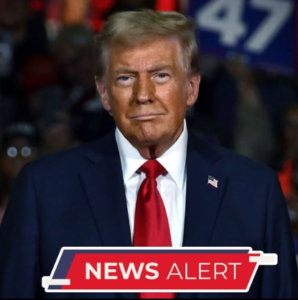In January 2025, President Donald Trump issued an executive order titled “Additional Measures to Combat Anti-Semitism,” which has sparked significant debate regarding its implications for foreign students involved in pro-Palestinian protests on U.S. college campuses. The order directs universities to “monitor for and report activities by alien students and staff,” particularly those perceived as “pro-Hamas” or “pro-jihadist,” with potential consequences including visa revocation and deportation.
The backdrop to this directive includes widespread campus demonstrations following the Israel-Hamas conflict that began on October 7, 2023. These protests ranged from peaceful assemblies to more confrontational actions, prompting varied responses from academic institutions. Some universities, such as Columbia and UCLA, established task forces to monitor demonstrations, employing surveillance tools like cameras and private investigators to track protesters’ activities.
Critics argue that the executive order’s language is overly broad and could unjustly target peaceful advocates of Palestinian rights under the guise of combating anti-Semitism. Advocacy groups, including the Foundation for Individual Rights and Expression (FIRE), have expressed concerns about potential infringements on free speech and the risk of ideological deportation. Legal scholars emphasize that while U.S. citizens enjoy robust First Amendment protections, non-citizens, such as international students, operate under a different legal framework, making them more vulnerable to penalties like visa revocation or deportation.
The implementation of this order has led to several high-profile incidents. For instance, Rumeysa Ozturk, a Turkish doctoral student at Tufts University, was detained by U.S. immigration authorities after expressing support for Palestinians in the Gaza conflict. Officials revoked her visa, alleging, without evidence, that she was “supporting Hamas.” A federal judge in Massachusetts temporarily halted her deportation to assess the jurisdiction of the case.
Similarly, Momodou Taal, a doctoral student at Cornell University and a citizen of the UK and Gambia, faced visa revocation due to his participation in pro-Palestinian campus demonstrations. A judge in Syracuse, New York, denied his request to prevent deportation, highlighting the challenges international students face under the new directive.
Academic institutions have also come under pressure. Columbia University, for example, agreed to stringent conditions imposed by the Trump administration to restore $400 million in federal funding. These conditions included stricter protest policies, increased campus security, and closer oversight of specific academic departments. The university’s interim president, Katrina Armstrong, resigned following the agreement, reflecting internal tensions and public backlash over the deal.
The executive order has ignited a broader conversation about the balance between combating anti-Semitism and upholding free speech and academic freedom. While the administration asserts that the directive aims to protect Jewish students from discrimination and hostility, opponents contend that it may suppress legitimate political discourse and disproportionately affect international students. The order’s focus on monitoring and reporting raises concerns about privacy rights and the potential chilling effect on campus activism.
As legal challenges unfold and universities grapple with compliance, the academic community remains divided. Some institutions have issued cautious responses, emphasizing their commitment to fostering free speech and protecting privacy, while others have taken more definitive stances, either in support of or opposition to the order. The situation continues to evolve, highlighting the complex interplay between national policy, individual rights, and institutional responsibilities in the context of higher education
